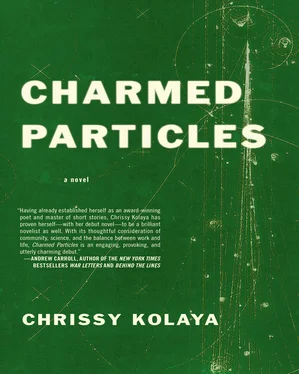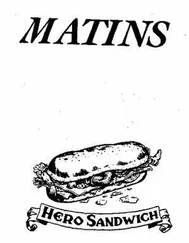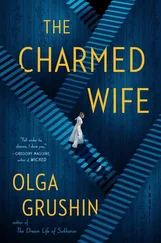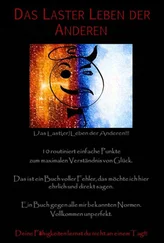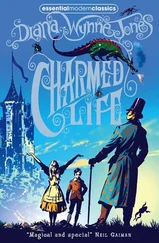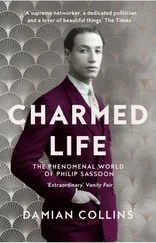There would be, over the course of the next year, he realized, a slow trickle of young, ambitious physicists from the Lab. There was still work to be done, but Abhijat and Dr. Cardiff knew, as did the younger physicists, that the Lab was no longer the place from which the most groundbreaking work would emerge.

One by one the staff filtered down to the cafeteria, taking places at the long tables that lined the atrium. The sun shone in through the windows, but inside, the mood was glum. Abhijat took a seat at a table with Dr. Cardiff and Dr. Cohen. The cafeteria ladies, who knew how badly the scientists had hoped for the collider, brought over plates of cookies, which the physicists picked at halfheartedly.
“This will be the end of the Lab,” Dr. Cohen said, breaking the heavy silence.
“Don’t be hyperbolic, Adam,” said one of their colleagues.
“There’s still much to be found in the lower energy levels we’ve got here now.”
“Oh, please,” Dr. Cohen answered. “That will be wrapped up in a matter of years. And then where will we be?”
“We’ll be off to another lab,” answered another colleague, as he took a seat.
That, they all knew, was likely true. Most would head to Europe or Japan. There were rumors of CERN trying for a super collider. Perhaps they would end up there.
Some would leave physics entirely, Dr. Cardiff thought, though he didn’t say this.
“Now I’m going to have to wait until I’m fifty to understand what breaks electroweak symmetry,” one of their young colleagues said, looking up from the napkin he’d torn into tiny pieces.
“If then,” Dr. Cohen added. “I think this may be the death knell for our field.”
“Entire fields of academic inquiry don’t just die out, Adam,” another colleague said.
“Of course they do.”

Alone now in his office, Abhijat looked again, as he had so many times before, out the window and over the great prairie.
He felt tired, he realized. Tired of the constant striving that had been the focus of his attentions for as long as he could remember, the most important part of his world. Tired of attending to a professional legacy, of contributing, critiquing, keeping up, being first. But he was afraid, too, of living without those things. Who would he be without them? Was there, as his mother had always insisted, happiness in contentment with what one had?
Instead of driving home, he decided, that evening, to walk, following the paths laid out through the Lab’s prairie grasses, toward town, toward his home.
He felt angry with ambition, he realized as he made his way home. It had, after all, come to nothing. Had seduced him with promises undelivered, and perhaps, he thought, undeliverable.
He had been an unwise man, he realized — no, worse, a stupid man, he decided, angry with himself.

For a week after the announcement, Abhijat stayed in bed, venturing out only to graze, listlessly, in the kitchen when his body reminded him to feed it. Each night when Sarala joined him, she felt his head for fever, but she knew what this was. She brought him cups of tea that grew cold on the nightstand, chicken soup at Carol’s suggestion, but this, too, grew cold and gelatinous in the bowl beside his bed.
“What will this mean for his work?” Carol had asked, and Sarala realized that she didn’t know.
When he emerged, finally, a week later, dressed again in a suit and tie, appearing at the breakfast table as though nothing had changed, Sarala and Meena exchanged looks. Once again he loaded his briefcase and made his way, for the first time in days, back to the Lab.
What to do now, he had asked himself. There was only going forward, letting go, embracing.

By the time of Randolph’s return, Lily had only a few days until her application to the Academy was due. She’d turned it in just under the wire, which was unlike her, but understandable given the circumstances. Meena had ignored the deadline entirely, something she had not yet had the heart to tell Lily.
CHAPTER 23. Field Guide to the North American Household
DUANE BANTAM, A MAN WHO, THOUGH COMFORTABLE AND successful in his role as the high school’s wrestling coach, did not harbor finer academic ambitions, had, that spring, inexplicably been assigned to teach the Nicolet Public High School’s Advanced Placement U.S. History class. As they neared the end of the school year, Mr. Bantam, in what was either an act of desperation or of genius — his students and colleagues had not yet decided — announced that the class would participate as reenactors during Heritage Village’s annual Revolutionary War Days, a hands-on learning activity, he explained. Mrs. Schuster, the director of Heritage Village, was thrilled by the idea. She assigned each of the AP U.S. History students a character, and they had thrown themselves into their preparations, studying and designing period-appropriate costumes with the attention to detail she usually saw only in the “career” living-history buffs.
The students, the majority of whom had been Lily and Meena’s classmates in the Free Learning Zone, now spent class periods poring over information on colonial-era field gear and weaponry, cookware, soap making, blacksmithing, indentured servitude, medicine, spinning, needlework, and woodworking, leaving Mr. Bantam to peruse his coaching manuals in peace.
Along with their newfound enthusiasm for reenacting, the AP students, with the zealotry of the recently converted, had also acquired a passion for the careful monitoring of accuracy above all else, and this had manifested in an awkward conversation (one Mrs. Schuster would have preferred to avoid) over Meena’s participation in the reenactment.
“It’s inauthentic,” Tom Hebert argued. “There wouldn’t be a housemaid in the period who looked like Meena.”
Lily glared at him. Meena rolled her eyes, tired of her classmates’ seemingly never-ending arguments over historically accurate footwear and undergarments.
Mrs. Schuster, who had not before been confronted with this issue, having dealt almost universally with the white, towheaded, and corn-fed volunteers who presented themselves to her, began to fumble. “We will do our best, Tom. You are right to note that it isn’t…” Here Mrs. Schuster paused, searching for the word she wanted. “… ideal. But we will make the best of it.”
“What a cretin,” Lily muttered. Together, the girls sat down under a tree a little away from the rest of the class to look through one of the books Mrs. Schuster had lent them.
“Well,” Meena allowed, “he does have a point.” She expected that she might encounter similar sentiments, similar questions from the Revolutionary War Days audience. Also, I drove here in a car and had Cocoa Puffs for breakfast , she imagined replying.

Sarala had offered to help the girls with their costumes. “I used to be quite skilled with a sewing machine when I was your age,” she told them as she laid out snacks and Lily regaled Sarala with details about their characters, both housemaids in Heritage Village’s mansion.
“For six weeks, we’ll be in training, learning about the time period and creating costumes. The mansion is the most difficult assignment,” Lily explained, “because there are so many rooms to interpret. You have to learn millions of details about each of them.”
Читать дальше
